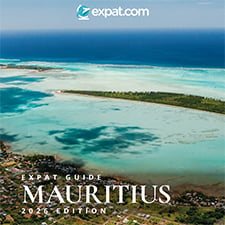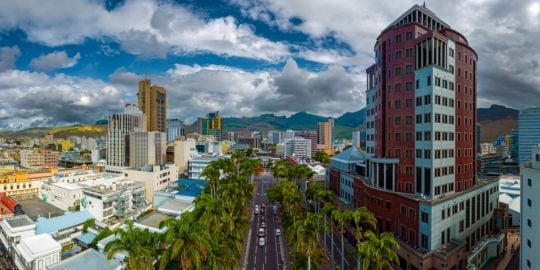Investing in Mauritius

Mauritius is an ideal destination for foreign investment. Besides a stable democracy, the Rule of Law, an independent legal system, the island also offers quality air, sea, road and financial infrastructures, but also double taxation agreements signed with 46 countries and a legal and regulatory framework maintained and well-respected. In this chapter, we explore the promising sectors, the different types of investments, the administrative formalities for the investors and a lot more.
What's new for investors in Mauritius?
To boost its economy after the health and economic crisis, the Mauritian government is looking to attract foreign investors, entrepreneurs and professionals with specific skills, land investors as well as retired foreign nationals under the conditions listed in this chapter.
The Mauritian authorities want to offer a competitive and attractive investment climate, a light, simple and attractive tax platform while favoring quality investments. This can only be achieved by diversifying the investment opportunities but also by facilitating the process through the Economic Development Board.
To achieve these objectives, Mauritius has put in place a number of measures aimed at a sustainable recovery, such as the removal of the minimum turnover requirement and the extension of the validity period of the Mauritian Occupation Permit.
In addition, the minimum investment requirement has been lowered from $100,000 to $50,000 for non-citizens wishing to start a business or invest in an existing company in Mauritius, and the minimum investment in real estate has been lowered to $375,000 to obtain a permanent residence permit. Let's not forget the possibility to obtain the Resident Permit through the purchase of real estate and the long awaited possibility for non-residents holding the Occupation Permit to host their parents as dependents. Finally, spouses of Occupation Permit holders no longer need to apply for a specific permit to work in Mauritius.
The Economic Development Board
The Economic Development Board (EDB) is the government agency responsible for promoting investment in Mauritius. To support the development of the country as an international business center, the EDB has an in-depth knowledge of the various economic sectors of the country and provides a personalized service to guide foreign investors and help them finalize their investment project:
- Advice on investment opportunities in Mauritius;
- Information on promising sectors;
- Organization of visits and meetings at the client's request;
- Identification of local partners for potential investors;
The EDB is also responsible for the management of applications for residency permits in Mauritius as well as the finalization of real estate investment projects under the Property Development Scheme (PDS).
Its main objective is to ensure greater coherence and efficiency in policy implementation and to define the direction of economic development to achieve high-income status through sustainable and inclusive growth while ensuring economic independence. To this end, it has also set up facilitation offices abroad.
Economic sectors in Mauritius
Prior to the COVID-19 pandemic, the Mauritian government was working on stimulating economic growth through 5 main objectives, namely serving as a gateway for investments in Africa, increasing the use of renewable energy, developing smart cities, developing the blue economy, and upgrading infrastructure, including public transport, the port and the airport.
Existing and promising sectors
To counter the effects of the pandemic on its economy, in 2022 the government continues to focus on rebuilding existing sectors: tourism and real estate, new technologies, business parks, tourism and health, ecotourism, medical and paramedical, biotechnology, medical equipment and consumables, parapharmacy, international business services (telecommunication, information, computer technology), human resources, logistics, marina and agribusiness.
Emerging sectors in development
While working to revive existing growth sectors, Mauritius is home to many opportunities in the following other industries: agribusiness; creative industries; ocean economy; education; renewable energy; financial services; logistics; health; ICT; real estate and hospitality; life sciences; manufacturing - traditional industries; and the sports sector.
Data on the main sectors of activity on the island are available on the website of the French-Mauritian Chamber of Commerce (CCIFM) as well as on the website of the EDB.
Becoming an investor in Mauritius
Mauritius is known for its mature and favorable trade and investment policy. In order to widen the openness of the Mauritian market to foreign investors and expertise and to maintain the economic stability of the country, it offers many facilities to foreigners to develop and grow their ideas by becoming investors. Among the advantages of investing in Mauritius, let's mention the possibility of obtaining an Occupation Permit of 10 years through professional investment and the Resident Permit through real estate investment.
Definition of investor in Mauritius
Under the Immigration Act of Mauritius, the term investor means a person who does not hold Mauritian nationality, an association or group of persons, whether incorporated or not, and whose control or management has been entrusted to persons who do not hold Mauritian nationality and are registered as such with the EDB.
The 2 main types of investors are:
Professional investors
Many choose to open or invest in businesses in Mauritius because of its strategic location at the crossroads of Europe, Asia and Africa, its proximity to Reunion Island, the cost-effectiveness of setting up a business and domiciling a head office, and the availability of a skilled bilingual workforce.
Professional investors benefit from a legal, fiscal and economic framework conducive to profitability. Indeed, the country enjoys a positive ranking in several categories. The country is ranked as one of the freest and most business-friendly countries in Africa; as a country with a high human development index (66th out of 189 countries in 2020); and as a country with a high economic freedom index (first out of 47 countries in the sub-Saharan Africa region and 30th in the world - Heritage Foundation 2022).
In addition, the country has signed a China-Mauritius Free Trade Agreement effective January 1, 2021 and another preferential trade agreement with India that came into effect in April 2021.
Find below the various programs and initiatives that are offered to foreign investors wishing to open their business in Mauritius or invest in an existing business.
Real estate investors
Real estate investors choose Mauritius for several reasons. These include the absence of property tax, inheritance tax and capital gains tax. Add to that personal and rental income taxed at a flat rate of 15%, and a stable political and economic framework, and you have a real estate purchase with a high rental yield (between 4% and 10%).
Expatriates can invest in real estate in Mauritius through several forms of programs. Some programs make them eligible for a 10-year renewable residence permit or a permanent residence permit in Mauritius, against any investment of $ 375 000 minimum.
Real estate programs for expatriates in Mauritius
Several real estate schemes have been designed to attract foreign investment, although Mauritians may also be interested: the VEFA (Vente en Etat Futur d'Achèvement), the Integrated Resort Scheme (IRS), the Real Estate Scheme (RES), the Smart City Scheme (SCS), the Ground 2 (G 2), the Invest-Hotel Scheme (IHS) and the Property Development Scheme (PDS), which is the subject of a chapter that is as complete as possible.
Professional investors
- The "Normal" investor: he/she makes an initial transfer of $50,000 or its equivalent in freely convertible currency to the bank account of the company to which the application will be made.
- Existing Net Asset Value investor: has a net asset value of at least $50,000 or its equivalent in freely convertible foreign currency, in the case of existing and inherited businesses, and a cumulative turnover of at least Rs 12 million over the 3 years preceding the application.
- High Technology Machinery and Equipment Investor: makes an initial investment of $50,000 or its equivalent in freely convertible currency, including: a minimum transfer of at least $25,000 to the company's bank account under which the application will be made and an investment equivalent to the residual value in high technology machinery and equipment, subject to the criteria determined by the CEO
- The Innovative Start-up Investor: has 2 options, make no minimum investment and submit an innovative project to the EDB or register with an incubator accredited with the Mauritius Research and Innovation Council.
- Premium Investor Certificate: issued by the EDB, it is intended for companies investing at least Rs 500 million and for companies involved in the manufacturing of pharmaceutical products and medical devices. More than a certificate, it allows one to benefit from specific incentives, on the recommendation of a technical committee and after approval of the minister. This scheme aims to boost the emergence of pioneering industries, innovative sectors and newcomers.
The Occupation Permit for foreign investors in Mauritius
The Mauritian government's policy is to favor quality investments and to ensure the viability of investment projects by foreign nationals. Foreign investors are eligible for the Occupation Permit provided that they:
Are able to justify a turnover of Rs 2 million for the first year and a cumulative turnover of at least Rs 10 million for the next 2 consecutive years.
Prove an initial investment of $ 100 000 (or equivalent in any other currency). Foreign investors who have been operating in Mauritius for at least 3 years prior to applying for an occupation permit, must have a cumulative turnover of at least Rs 12 million for the last 3 years. This condition also applies to foreign investors who inherit a company, in case of death or incapacity of the previous investor, when this company has a turnover of at least Rs 12 million during the last 3 years.
Useful links:










